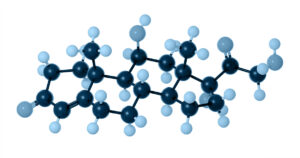DTRA Funding Alert: Amendment to DTRA Chemical / Biological Technologies Broad Agency Announcement Includes Additional Funding Opportunities to Develop Bioinformatics Capabilities, Ocular Sampling Technologies, and MCMs for Chemical Warfare Agents
On March 21, 2023, the Defense Threat Reduction Agency (DTRA) released an amendment to the current Broad Agency Announcement (BAA) seeking proposals that address the following areas.
CBA 01 – Detection: Bioinformatics Capabilities for the Field and Beyond
The objective of this topic is to develop bioinformatics, data analysis, and reporting solutions for sequencing technologies that can be used in the field, with a focus on portable sequencing platforms. The solutions should provide rapid, real-time data analysis to discern whether a threat exists and provide clear reporting for in-field interpretation. The graphical user interface and data interpretation should be intuitive, and the solutions should be applicable to accurate microbial detection, identification, and threat prediction based on sequencing data.
The data analysis should be flexible and adaptable to work on portable hardware and be scalable for advanced analytics. Collaboration with other government agencies, academic institutions, and private entities is encouraged. The impact of this topic is to advance biological threat detection technologies to support joint force readiness against potential biological threats, avoid unnecessary personnel exposure, and address emerging biological threats.
CBA 02 – Diagnostics: Analysis of Agent Exposure Biomarkers in the Ocular System
DTRA seeks innovative approaches for minimally or non-invasive ocular sampling technologies for the diagnosis of chemical and biological warfare agent (CBWA) exposures. The ocular system provides a unique source of sampling matrices for medical diagnostics, including tears and the retina, with potential biomarkers at both the protein and nucleic acid level.
The objective is to identify relevant biomarkers, develop minimally or non-invasive methods for sample collection or eye imaging in the field, and create adaptable diagnostics tools. The envisioned tool will provide a novel diagnostic tool independent of traditional sample matrices and expand knowledge of biomarkers present in the ocular system, allowing for rapid diagnostics following a CBWA exposure event and appropriate medical care.
CBS 01 – Emerging Threats: Discovery and Development of Broad-Spectrum, Cross Toxidromic Chemical Medical Countermeasures
This area focuses on the development of medical countermeasures (MCMs) that can act across multiple toxidromes, in order to provide first responders with more effective and efficient treatment options for chemical emerging threat agents. The use of Artificial Intelligence and Machine Learning (AI/ML) platforms is encouraged to optimize predictions of agent: host target and MCM: therapeutic target interactions.
Repurposing FDA-approved drugs and exploring the utility of candidates known to work against one toxidrome as MCMs for additional toxidromes are also recommended. MCMs that are effective across three or more toxidromes or syndromes and that are efficacious both peripherally and across the blood brain barrier (when relevant) will be given priority. Logistic considerations, such as storage temperature and route of administration, should also be addressed.
CBS 02 – Discovery and Development of Novel, Non-Oxime Based Therapeutics to Treat Symptoms of Exposure to Organophosphorus Chemical Warfare Nerve Agents
This topic includes the development of new MCMs for organophosphorus (OP) chemical warfare agents, which can cause severe physiological symptoms. The current MCMs include pralidoxime, atropine, and diazepam. DTRA seeks to explore alternative mechanisms for acetylcholinesterase (AChE) AChE reactivation and methods to cleave excess acetylcholine, generate new AChE, and treat the central nervous system effects of OP exposure.
The lead candidate should perform better than the current standard of care in terms of efficacy, spectrum of OPs, physical properties, ADME profile, in vivo safety profile, and ability to be produced in GMP-compliant lots. The development plan should include Phase I clinical studies and ultimately live agent testing and Phase II clinical trials.
The Phase I proposal submission deadline for these DTRA Amendment topics is May 10, 2023 at 2pm ET.
If you are developing a technology or therapeutic countermeasure that you think might fall under one of the areas mentioned above, EverGlade can help you make that determination and pursue a successful contract. EverGlade Consulting is a national consulting firm helping clients navigate the federal landscape. We work with technology-driven companies whose focus is to secure non-dilutive funding through the federal government.
We offer services ranging from opportunity identification and proposal support through the implementation of systems to comply with federal regulations at agencies including BARDA, ASPR, NIH, DTRA, JPEO, and DARPA.
For additional information about EverGlade’s recent success visit:
- EverGlade Consulting Helps Land up to $1 Billion in BARDA Funding for Biotechnology Company
- EverGlade Consulting Plays Key Role on Industrial Base Expansion Project with $150 Million in Federal Funding Secured
- EverGlade Consulting Plays Key Role on Industrial Base Expansion (IBx) Project with $39 Million in Federal Funding Secured
- EverGlade Consulting Assists Detect, Inc. with Securing $22m in Federal Funding for the Development of a Next Generation Molecular Test for COVID-19 and Flu
- EverGlade Consulting Assists United Safety Technology, Inc. in Securing $97 Million DOD Award








